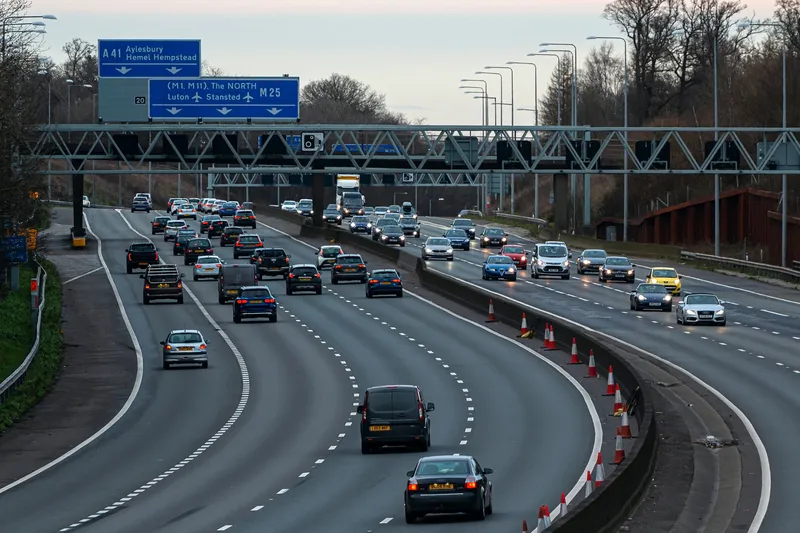A spat over how dangerous the UK’s all lane running (ALR) or ‘smart’ motorways are has broken out between
Smart motorways do not have hard shoulders, instead relying on emergency areas at intervals to provide refuge for stranded motorists.
The AA recently highlighted Stationary Vehicle Detection, a Highways England report published in March 2016, which looks at how long it takes to identify a vehicle broken down in a live lane of smart motorway when stationery vehicle detection (SVD) systems are not in place.
AA says Highways England’s analysis suggests that “stopping in a live lane of an ALR motorway more than triples the danger when compared to a traditional motorway with a continuous hard shoulder”.
Using a Freedom of Information request, the AA says it found only 24.2 miles of England’s 135.1 miles of ALR are covered by SVD technology. Highways England, the government agency which oversees England’s major roads, insists that it plans to roll out more SVD and that all ALR motorways have full CCTV coverage of the “mainline carriageway”.
But AA president Edmund King counters: “This is a truly shocking revelation and shows just how dangerous it can be breaking down in a live lane. This highlights why growing numbers of the public are justified in their safety concerns over the removal of the hard shoulder
However, speaking at a conference, Highways England chief executive Jim O’Sullivan was %$Linker:
O’Sullivan says there is no difference between accident rates on smart and conventional motorways.
The widow of a driver killed this year on a smart motorway has already announced she is to bring a case of corporate manslaughter against Highways England. Separately, the organisation announced this week that it is to offer rescue and roadside recovery services a new training course to help them work safely on smart motorways.
UK organisations disagree on smart motorway ‘dangers’
A spat over how dangerous the UK’s all lane running (ALR) or ‘smart’ motorways are has broken out between Highways England and a leading motoring organisation.
Smart motorways do not have hard shoulders, instead relying on emergency areas at intervals to provide refuge for stranded motorists.
The AA recently highlighted Stationary Vehicle Detection, a Highways England report published in March 2016, which looks at how long it takes to identify a vehicle broken down in a live lane of smart motorway when s
September 13, 2019
Read time: 2 mins








